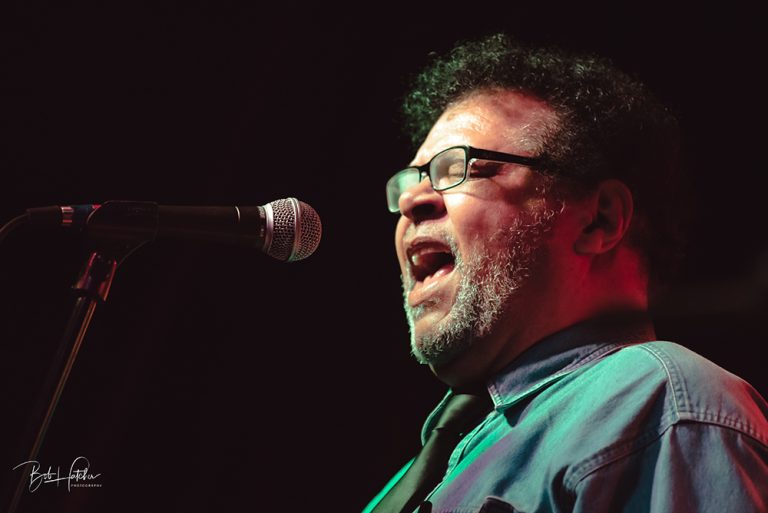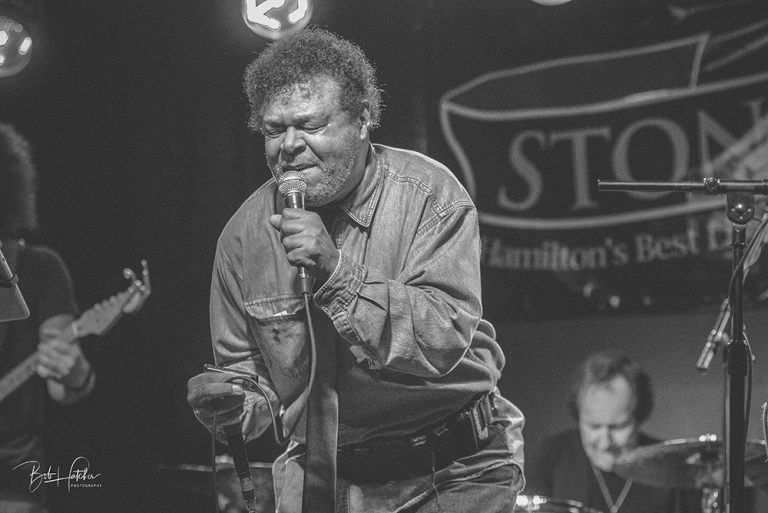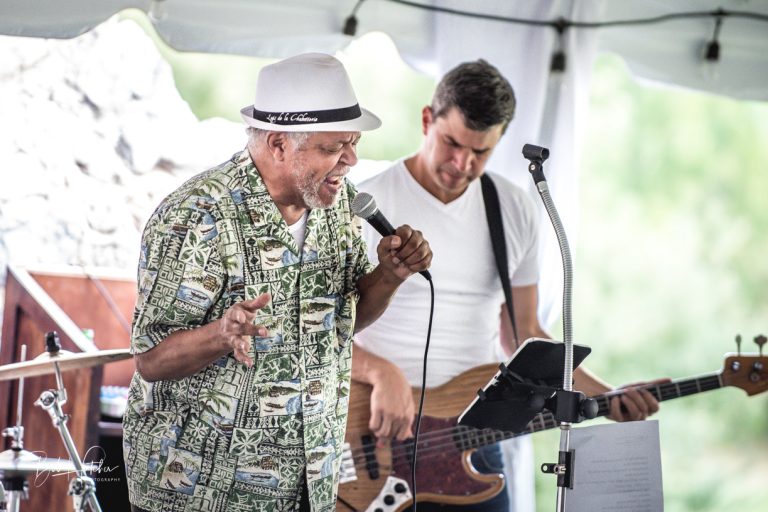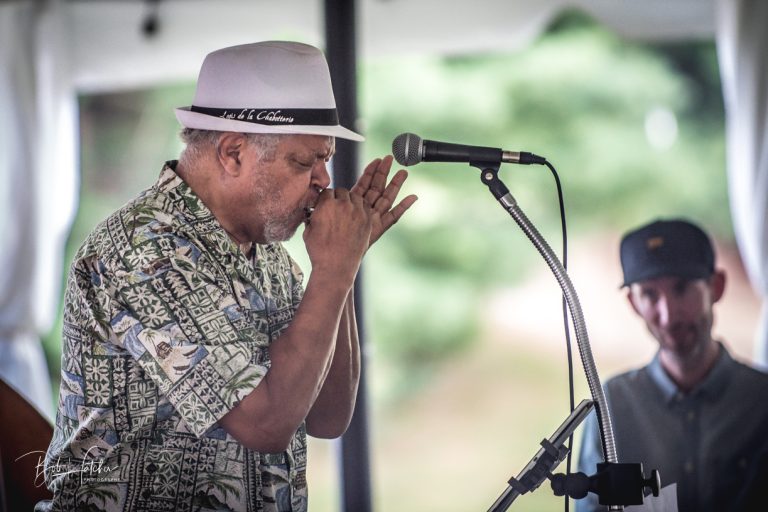The Elder Statesman
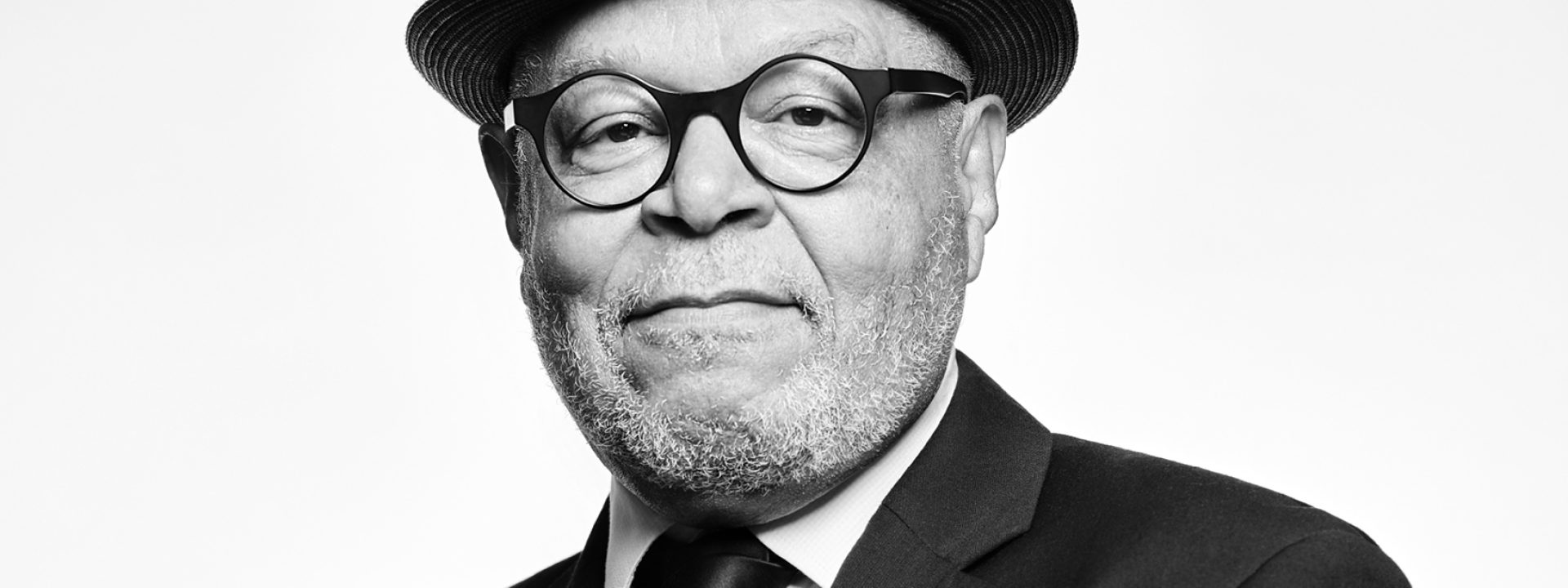
This article is dedicated to the memory of Lauren Marie Mair-Kennedy:
April 12, 1993 to August 1, 2022.
At 80, Harrison Kennedy is still making beautiful music. With the recent release of his latest record, he sat down with Jamie Tennant to look back on his storied career, and look ahead at what’s to come.
It’s a hot one – we’re talking fry-an-egg-on-the-sidewalk hot – but Harrison Kennedy looks comfortable. Beneath the umbrella of his patio table and shaded by a wide, leafy tree, he sports short sleeves and sips a glass of sparkling water. He appears just as relaxed as the cat, Saraha, who lounges on a chair across the yard. Kennedy appears just as unassuming as anyone else in his west Hamilton neighbourhood.
There’s nothing about the scene that suggests Kennedy is a successful musician. Or that he’s shared stages with legends, (BB King, Parliament Funkadelic, James Brown) and worked with the who’s who of Motown.
Or – and this one is a monster – that he was the first Black Canadian to sell a million records.
He might tell you that fact, because he likes to tell stories, but he sure won’t act like a guy who sold a million records. Harrison Kennedy is, in many ways, still just Harry Kennedy, a local musician. Maybe it’s the old cliché about Hamiltonians being down-to-earth ringing true yet again, but Harrison Kennedy knows who he is and what he wants. It’s what kept him grounded, present, truthful, and it’s one of the reasons he still makes remarkable music at the age of 80.
Much was made of that milestone birthday, which occurred in March of this year, but you can tell from his modest shrug that Kennedy is unimpressed with himself in that regard. He simply does what he does, as best he can. He’s about to embark on a two-week tour of France; he doesn’t have time to congratulate himself on simply being here. He has plenty of things to congratulate himself on, if he wanted to, though he doesn’t come across as the self-congratulatory type.
“I’m kinda like the elder statesman here in Hamilton,” Kennedy acknowledges. “There’s a lot of stories, from where I grew up and where I ended up – and where I’m going. Still feeling like I’m still growing.”
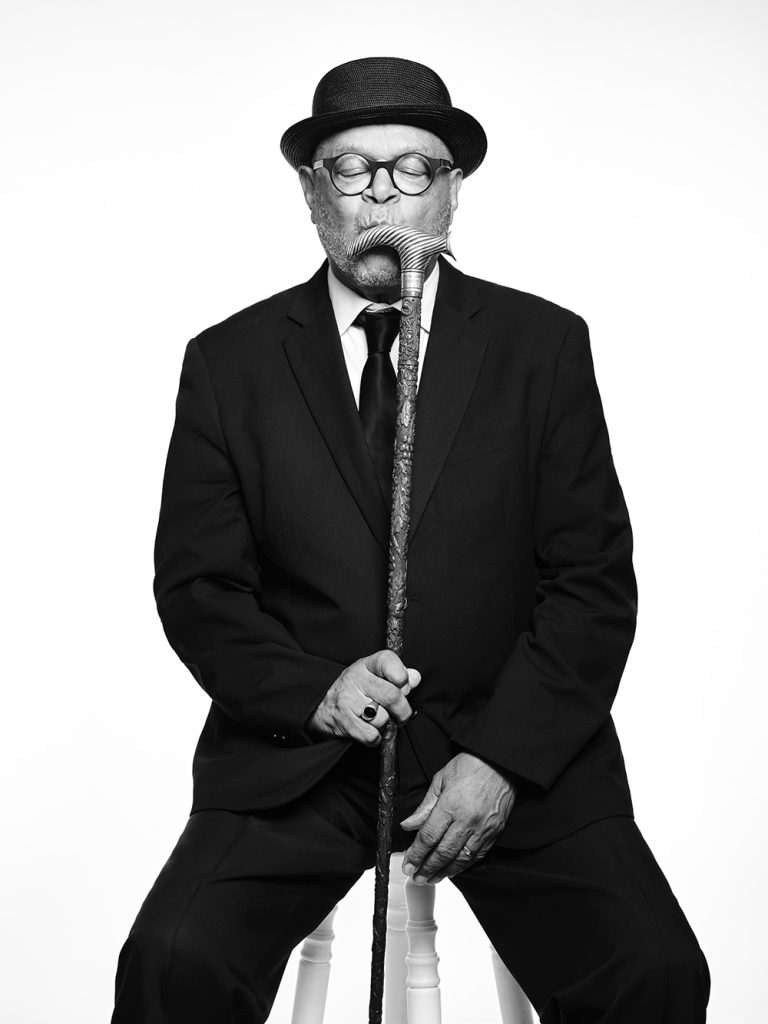
These stories snake out of his conversation, spreading out like roots that connect him to the earth. The stories and the sensible attitude, the experience and the ability to express that experience in song; these are things that help Kennedy write music with such authenticity. A blues player rooted in tradition but reaching beyond it, his music is filled with warmth and humour one moment, deep longing the next. His voice, earthy and powerful and agile, could not be better suited to the music he chooses to play.
Music and Harrison Kennedy have had a long, lively relationship. Born in the 1940s, Kennedy was able to experience some of the glory days of jazz music in Hamilton, when artists as legendary as Billie Holliday and Duke Ellington would play in the city. These artists famously spent some of their off-hours in the homes of local families like the Washingtons and the Kennedys.
“When the musicians would play in Hamilton and Toronto, Sunday was their day off,” Kennedy recalls. “Sunday was the day you weren’t allowed to drink back in those days, and also, there weren’t a lot of places they could go because of racism. So my mum, raising three boys, found a way to make some money. Our house would be loaded up. On Friday they’d bring all the beer and whisky in, and on Sunday the players would show up. They’d come out to our house to eat and play darts. They’d play something called Guggenheim. They used the rubber tops off mason jars, and they had these hooks. They would throw the tops at the hooks and call that Guggenheim, I don’t know why.”
While the women cooked, the men would play darts and jam on the piano. Young Harrison was called up by his mother and asked to sing “that song I like so much.”
“I never knew what song she was talking about,” Kennedy says with a laugh.
As he reminisces about those times, more stories emerge; anecdotes about his Uncle Clifford, Uncle Bruce, his stepfather Joseph Morris, his mother, his brothers. The stories are imbued with love and humour, even the ones that have less rosy memories attached to them. There were hard times for the Kennedy family – losses, evictions, and, unsurprisingly, instances of racism. Kennedy remembers the time he was chosen to read in front of the class, and how upset his mother was when she saw what he’d been assigned to read.
“She came into the class and said ‘My son is not going to read Little Black Sambo!’” Kennedy’s face beams, clearly proud of his mother to this day.
Reading, it turned out, would remain a passion for young Harrison. When he finally had the opportunity to go to university, he studied English – as well as organic chemistry.
“I loved Chaucer,” he says. “The Canterbury Tales, to me, was like the blues. It was about this guy that travels across the country, he talks about all the things he’s seen and the characters he’s met.”
School, of course, didn’t pay for itself. Kennedy decided to turn to his old friend, music, to make some extra money. He soon connected with some Toronto performers by the name of the Stone Soul Children. From there, fate placed the puzzle pieces together on Kennedy’s behalf when he ended up with an impromptu audition for Motown legends Eddie Holland, Brian Holland and Lamont Dozier. Holland-Dozier-Holland decided to invite Kennedy to be a member of the group they were putting together called Chairmen of the Board (see sidebar), who would be signed to their new label, Invictus Records.
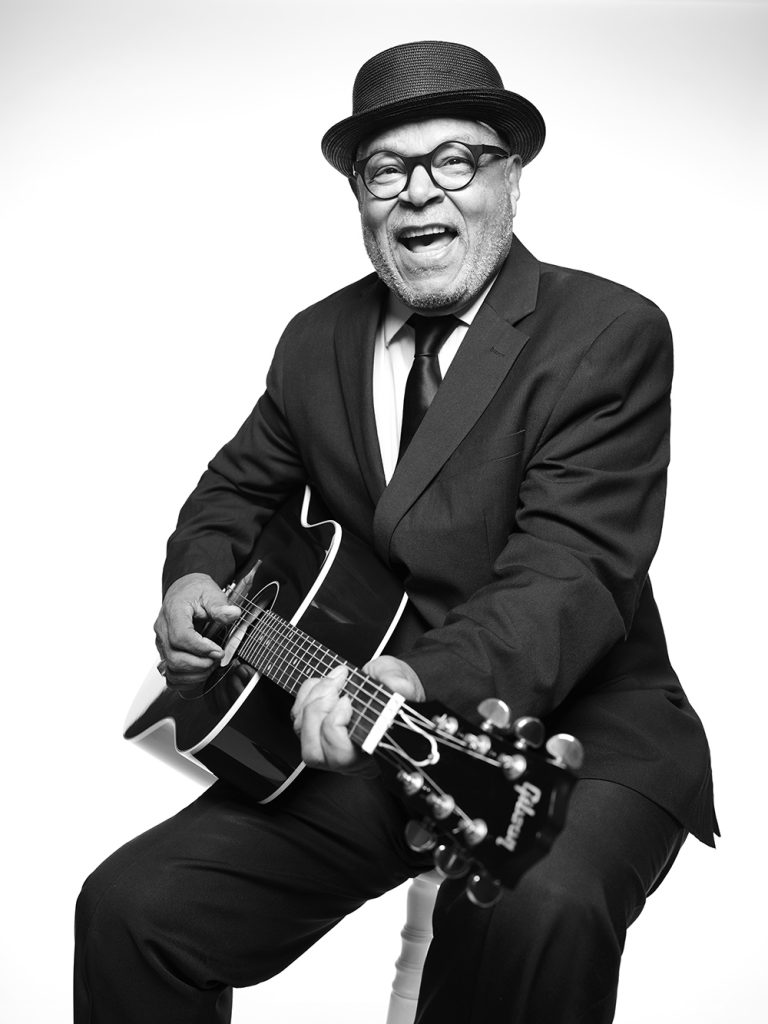
reaching beyond it, writes Jamie Tennant.
Over the next several years, Kennedy found himself rocketing to fame, learning about the music business from both his bandmates and the legendary likes of Holland-Dozier-Holland. He grins when he recounts how Eddie Holland divulged a secret — that lines such as “he keeps me hanging on” or “ I heard it through the grapevine” were the result of listening to his sisters’ and sisters’ friends’ conversations.
“We were close,” Kennedy says of Edward Holland. “He’s the guy that said he wanted me to do a solo album. (Chairmen of the Board) already had a million-seller. He said he wanted me to do the kind of stuff that I like – the story tunes – which was different from Motown.”
Dozier handed Kennedy $75 to buy a guitar – which, as a singer, Kennedy didn’t know how to play – and told him, “You’ve got two weeks. Get a band.”
Kennedy hitchhiked out to Ann Arbor, where he found the musicians who helped him make 1972’s Hypnotic Music. The album contained elements of the funk, soul and blues Kennedy loved. Several of the songs showed his socially conscious approach to the world, too: the anti-war and pro-environmental “You Hurt Your Mother Again” and the pro-LGTBQ+ anthem, “Closet Queen.”
“‘Closest Queen you’re all right,’” sings Kennedy to illustrate. “‘You know what I mean, Closet Queen come into the light where you can be seen’… you know, I’d walk by pubs and gay folks were blasting that tune. Everybody’s got a right to be alive! What the hell. Jesus Christ.”
Chairmen of the Board were hailed as the future of soul music by many. Harrison was, to many people in America, a bona fide star. “My picture was up in Times Square, big afro and everything, for months,” Kennedy remembers. “Afterward, Three Dog Night was up there.”
Yet all was not all right in Kennedy’s world. He became increasingly disenchanted with the music industry’s immoral business practices, and prejudice from unexpected places.
“A lot of these guys from Detroit didn't like me,” he recalls, “because I was a ‘proper-talking n’ — I won’t use the word. This is from Black people, saying that to me. Some of the people involved in the music business didn’t understand my Canadian ways. I heard the guy who was supposed to be our manager saying I wasn’t Black enough for him.”
Another time, Kennedy recalls driving through Mississippi with his bandmates when he spotted a lone man working in a field. General Johnson, inspired by the scene, scribbled down what would become the lyrics to the song “Patches.” “People stole it from him,” Kennedy says. “They said we couldn’t do that, it was too country.” That didn’t stop the song itself, however, which was given to Clarence Carter, who won a Grammy for it.
“It came like a cluster of wrong,” says Kennedy. That wrong – that sense of unease – led him to quit the business and return to his family in Hamilton. Even when offered significant incentives, Kennedy refused to move to California. Johnson invited him to go down south, but Kennedy refused that, too, unwilling to leave his family so far behind.
“I loved those guys but I just couldn’t see myself living down south,” he says. “I’d get into trouble sure as God made little green apples. I’m from Hamilton, I would have told someone off and that, you know, they use guns down there. In Hamilton, we fight with our fists.”
Like his uncle, Jackie Washington, Kennedy had no desire to leave Canada and go to the United States. “You gotta change yourself,” says Kennedy. “I like being myself. I like having an opinion, discussing that opinion without someone not liking me because of my language.”
When Kennedy returned to Hamilton, he temporarily left music behind. He landed at Allied Chemical, which was fitting for an organic chemistry major. He worked his way up from sweeping the floor to head of the union, and eventually, supervisor.
Music, however, has a way of creeping back into lives. After a while, Kennedy sought out Bobby Washington, working as a mechanic on the other side of town, and they put a band together on the side. From that moment in the 1980s through to the 2000s, Kennedy continued to gig and make music. Yet other than one live performance on cassette, he didn’t release any new albums until he found the blues again. When he started to work in the blues – still uniquely Kennedy, but more rooted in the down-home sound – the inspiration stuck. In 2003, he released the album Sweet Taste. There was no turning back after that.
While Kennedy still has a deep love of the other kinds of music he’s made – or hasn’t made, like classical music – he has found a groove in the Son House/Taj Mahal style blues. It’s a direction that audiences and fans responded to with enthusiasm. His career has been on an upward trajectory ever since, culminating – culminating for now, that is – in a Best Blues Album JUNO Award for his 2014 release This Is From Here.
“This new one,” he says, tapping the CD on the table in front of him, “this one we’re putting in for a Grammy.”
The list of collaborators and contributors on his records prove that his peers trust him, too. His latest, Thanks for Tomorrow, features a remarkable roster of talented musicians. The cover of the album names two of them – four-time Grammy nominee Ruthie Foster and (master) guitarist (and Blackie & The Rodeo Kings member) Colin Linden. The rest of the line-up are no slouches, either: Chris Caddel, Jesse O’Brien, Gary Craig, John Dymond and many others who are well-known, well-regarded players.
“All of them put their signature on it,” says Kennedy. “I said to ’em: ‘Look fellas, I’m not looking over your shoulder. If you’re not satisfied with what you do, if there’s something you wanna tweak, this studio’s gonna stay open.’ And they did, they kept going back, it was great.”
Ultimately, the way Kennedy plays the blues combines more than a century of tradition with almost a century of living. There’s no posing here, no pretend-bluesman posture.
“Blues should be the truth,” he says. “Somebody that sits back and writes a tune about how hard their life is, and they got land they own, cottages somewhere, don’t come from a poor family … they don’t know nothin’ about hard times. I also don’t like wanna-bes that use their colour in order to get over. C’mon man, you aren’t fooling anybody.”
“After having said that,” Kennedy continues, “I have a hard time knocking success. I may not like the soda pop you make but if it’s putting food on your table, good for you. There’s no reason for me to denigrate what you’re doing. I have to keep doing what I’m doing. And perhaps I’ll be OK, too.”
On becoming a blues singer: “Doing what I was doing, I was coming home after a gig with my throat all sore from singing. My partner said, ‘Have you heard of Taj Mahal?’ I said ‘Of course’. She said, ‘You’ve got a better voice than him, you should be making music like that.’ I listened to some of it and said, ‘Oh hell, I can do that.’ She says, ‘I know you can, I’ve heard you doing it!’”
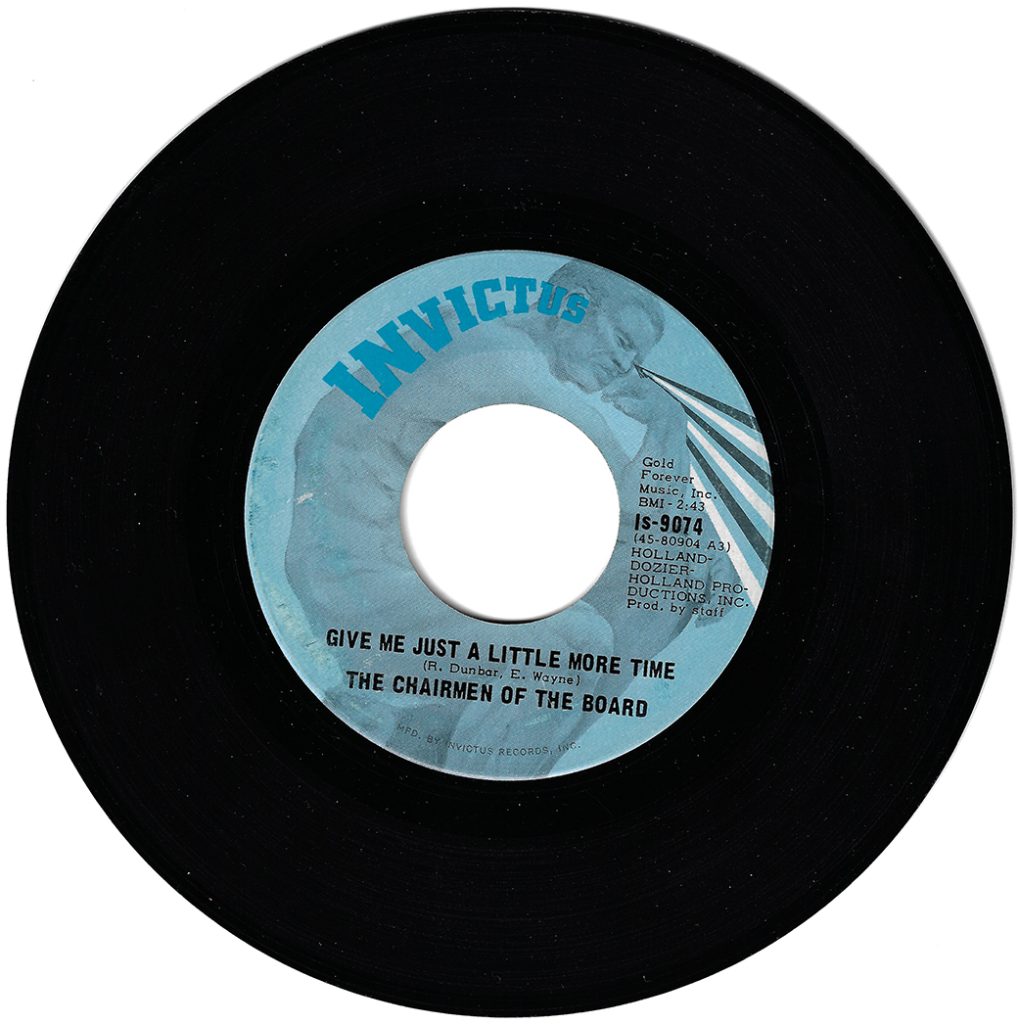
The discography
1970 The Chairmen of the Board (with the Chairmen of the Board)
1970 In Session (with the C.O.T.B.)
1972 Hypnotic Music
1972 Bittersweet (with the C.O.T.B)
1974 Skin I'm In (with the C.O.T.B.)
1989 Live in the Eye
2003 Sweet Taste
2005 Voice + Story
2007 High Country Blues
2009 One Dog Barkin'
2011 Shame the Devil
2013 Soulscape
2014 This Is From Here
2018 CrossBorder Blues (with Jean-Jacques Milteau and Vincent Segal)
2022 Thanks For Tomorrow
Chairmen of the Board
The Chairmen of the Board formed in Detroit in 1968. They were put together by former Motown giants Holland-Dozier-Holland for their new label, Invictus. Edward Holland told Kennedy, “You four guys are all solo artists, you could handle the show by yourself. That’s why we’re calling you the Chairmen of the Board.” Over the years, the Chairmen sold millions of records, including their most recognizable hit, “Gimme Just A Little More Time.”
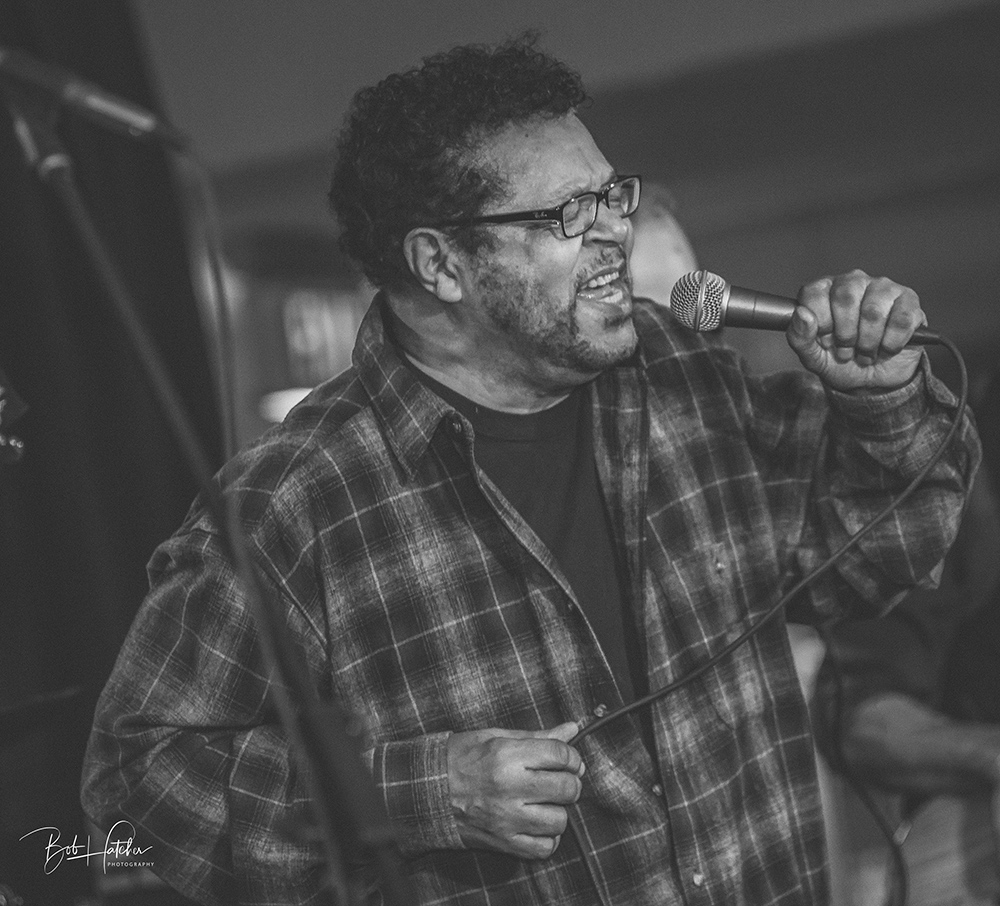
Kennedy’s membership in this supergroup is a textbook example of “right place, right time.” The singer found himself in Detroit with a group of Toronto musicians. There was a singer, auditioning for Invictus, who was suddenly too nervous to take the stage. “They were like ‘Harrison, can you do one more? We can’t get her out of the dressing room!’” Kennedy recalls.
In stalling for time, Kennedy unknowingly auditioned in front of Holland-Dozier-Holland. “After I finished Edward (Holland) asked me, ‘How many tunes have you written?’ I said about 50 and they looked at one another. I didn’t know I was talking to three of the most proficient songwriters on the planet.”
Kennedy wasn’t immediately sold on joining the group. He was reluctant to move to the U.S., and in fact, he never did – he lived in Windsor instead. Of course, in the end, he did join, and in doing so, became part of an international sensation.
“I loved those guys,” reminisces Kennedy. “You had General Johnson, who was basically the quintessential pop singer. Eddie Custis was the ballad singer. Just that pure. Danny Woods did the throw-down, dance-to-the-music R&B stuff. And me, I kinda did the folk and blues stuff. We just cooked.”
Kennedy is modest about his talent as compared to the other Chairmen. “I said, ‘what am I doing here?’” he jokes. “But they saw something in me. I learned so much from these guys – it was like a PhD in learning the music business.”
The Chairmen performed around the world, played the Apollo, and appeared on shows such as the Tonight Show, Soul Train and Top of the Pops. Though Kennedy left the group in 1974, the band continued on with other members – with Kennedy’s blessing, of course. The only surviving member of the group, Kennedy once sang lead on an episode of Soul Train. Today, he still performs that song, “Chairman of the Board,” in his live sets.









